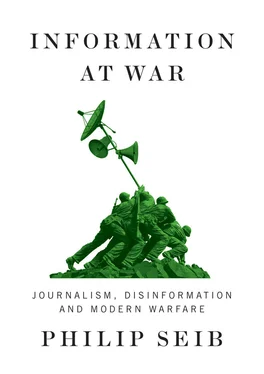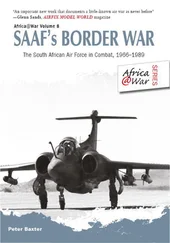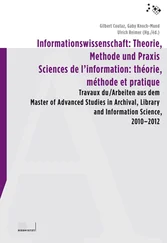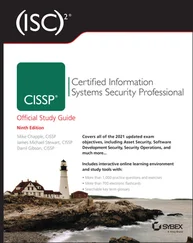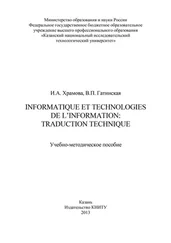1 ...6 7 8 10 11 12 ...16 While the nominees for president mostly avoided debating the case for providing substantial aid to Britain, Murrow continued to deliver the war to American living-rooms. So did his CBS colleagues in London. Eric Sevareid observed in one of his reports: “London fights down her fears every night, takes her blows and gets up again every morning. You feel yourself an embattled member of this embattled corps. The attraction of courage is irresistible.” 13
These were the mixed messages Americans were receiving. From the presidential candidates, rhetoric about how much more committed to peace each was; while from Murrow and his colleagues more dramatic – and perhaps more believable – reports that clearly, if implicitly, endorsed the British cause.
On Election Day, Roosevelt won 449 electoral votes to Willkie’s 82, although the popular vote margin of just 5 million votes was FDR’s smallest in his three presidential campaigns. Post-election opinion analysis, however, bolstered Roosevelt’s foreign policy position. A survey found that 11 percent of Roosevelt voters backed him because of the international situation, while only 2 percent of Willkie’s supporters backed him because of his promise to keep America out of the war. 14
Freed from campaign pressures, Roosevelt no longer had as much need to zig-zag in foreign affairs. American public opinion was steadily coming more into line with the president’s pro-British views. A Gallup survey in May 1941 asked if the United States should continue to aid Britain even at the risk of being drawn into the war, and 77 percent said yes. By a slight but consistent majority, Americans also approved using the US Navy to guard convoys sailing to Britain. 15
Roosevelt’s actions reflected his precise sense of what was politically possible – how far and how fast the public and Congress would allow him to go. Beginning in May 1941, the Gallup Poll asked, “So far as you personally are concerned, do you think President Roosevelt has gone too far in his policies of helping Britain, not far enough, or about right?” Commenting on the responses to that question, polling expert Hadley Cantril cited “the almost uncanny way in which the president was able to balance public opinion around his policies.” Despite the steady increase in US aid to Britain after May 1941, said Cantril, “the proportion of people who thought the President had gone too far, about right, and not far enough remained fairly constant.” (“Too far” and “not enough” each had held at about 20 percent, and “about right” at around 50 percent.) 16
Americans also increasingly believed that Britain was holding its own against Germany. Cantril noted the close relationship between the willingness to help Britain and the expectation of an eventual British victory. “We do not like to bet on a loser,” wrote Cantril, “even if he is a friend.” He also observed that, although isolationism was far from extinct, it was on the wane. Public figures such as Charles Lindbergh and Joseph P. Kennedy who had said that Britain was doomed to defeat saw support for their position begin to wither. By mid-1941, the interventionists had become more fervent than the isolationists. Cantril observed that interventionism had grown stronger because “most of us were simply convinced that it was to our own self-interest to defeat the Nazis … Our extensive news services and mass media of communication won our confidence and kept us so well informed that we became increasingly alert to the implications events and courses of action had for our self-interest.” 17
By November 1941, belief in the inevitability of the United States going to war seemed to have taken hold. Among the public, the dominant question was “When will we fight?” Polls found that more than 80 percent of Americans expected war with Germany, and close to 70 percent anticipated war with Japan. About 70 percent said that it was more important to see Germany defeated than to stay out of the war, and approximately the same number said that if America’s political and military leaders thought the only way to stop Germany was to go to war, then it should be done. 18
How much of the shift in US public opinion was attributable to Roosevelt, Murrow, or any information in particular is difficult to know; survey research at the time was not as detailed as it later became. For that matter, the importance of any one type of information delivery was also difficult to measure consistently. But, as A. M. Sperber observed, Murrow’s broadcasts “were becoming a national listening habit, as essential, in millions of homes, as the evening meal.” 19
Radio delivered the messages of Murrow, Roosevelt, and many others – journalists, politicians, entertainers, and more – into America’s living-rooms. Hearing these voices, rather than reading their words or learning about them second-hand, increased their impact and credibility.
Probably the most important foreign visitor to American living-rooms during this time was Britain’s prime minister, Winston Churchill. The rumbling rhetoric of his broadcast speeches captured the attention of even those Americans not ready to commit to his cause. Eleanor Roosevelt later said his speeches “were a tonic for us here in the United States as well as to his own people.” 20Churchill understood how dependent Britain was on American help and thus on Franklin Roosevelt’s goodwill, which was in turn dependent on the political temperature of the American voter. Churchill’s recognition of this was a factor in his appointing his close aide, Brendan Bracken, in July 1941 to run Britain’s Ministry of Information. Bracken was knowledgeable about US politics and American journalism. He well understood the reason for Churchill putting him in this post; he promptly told the Ministry’s American Division that its job was to “draw the Americans into the war.” 21When prominent American journalists and news executives such as Washington Post publisher Eugene Meyer came to London, they were assiduously courted by Bracken and often invited to 10 Downing Street for a drink with Churchill. 22
At this time, radio was still something of a novelty; in the United States it was just in its second decade as a mass medium, but its reach was growing rapidly. In 1921, 60,000 American homes had radios and there were 30 radio stations in the country. By 1940, there would be radios in more than 29 million US homes (out of a total 35 million households) tuned in to 814 stations. 23Perhaps most important, it was a national venue. Across the country, radio networks’ listeners could hear the same news bulletin at the same time, which was unprecedented. Today, the entire nation (and much of the rest of the world) can tune in to broadcasts that are “going live.” This is now the standard, not the exception, and it changes how we regard events ranging from a football game to a battlefield firefight. 24
The novelty of a particular technology should not, however, overshadow the importance of the content it delivers. Staying with Murrow and Roosevelt as examples, their presentations of information were anything but prosaic. The power was in the words, not solely the medium. Consider these excerpts from FDR’s fireside chat of December 29, 1940:
If Great Britain goes down, the Axis powers will control the continents of Europe, Asia, Africa, Austral-Asia, and the high seas. And they will be in a position to bring enormous military and naval resources against this hemisphere. It is no exaggeration to say that all of us in all the Americas would be living at the point of a gun – a gun loaded with explosive bullets, economic as well as military. We should enter upon a new and terrible era in which the whole world, our hemisphere included, would be run by threats of brute force … The people of Europe who are defending themselves do not ask us to do their fighting. They ask us for the implements of war, the planes, the tanks, the guns, the freighters which will enable them to fight for their liberty and for our security. Emphatically, we must get these weapons to them, get them to them in sufficient volume and quickly enough so that we and our children will be saved the agony and suffering of war which others have had to endure … We must be the great arsenal of democracy. For us this is an emergency as serious as war itself. We must apply ourselves to our task with the same resolution, the same sense of urgency, the same spirit of patriotism and sacrifice as we would show were we at war. 25
Читать дальше
